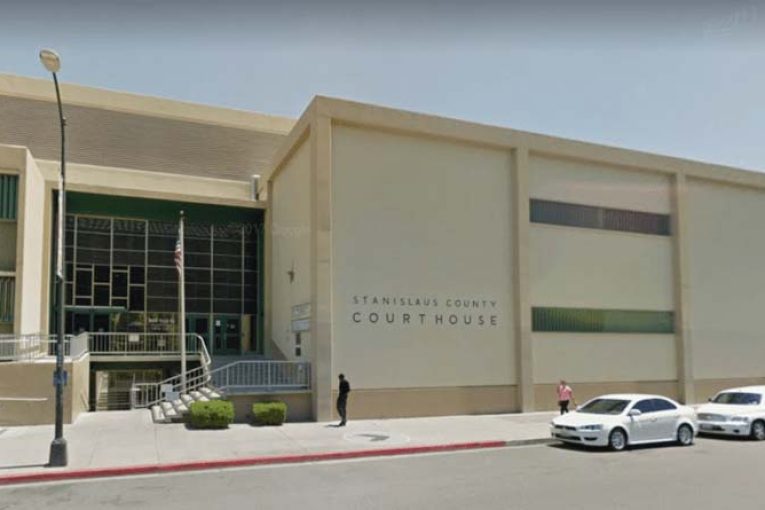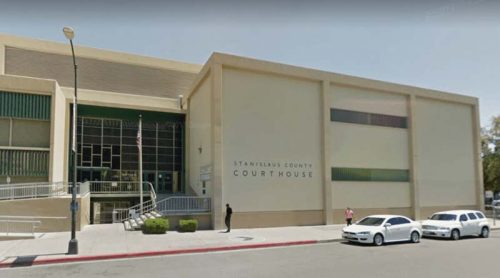

By Daniella Espinoza
MODESTO, CA – After a preliminary hearing here in Stanislaus Superior Court last week—featuring police and other witness testimony a June 26 violent incident—the accused was ordered held to stand trial.
Charged with felony violations of Penal Code section 273.5(a) battery against a spouse/cohabitant, PC § 422 (a) threat to commit serious bodily injury or death, and PC § 245 (a)(4) assault by means likely to cause “great bodily injury,” Jillian Vijsma sat in silence as two different witnesses corroborated the story against them.
To start the preliminary hearing, Deputy District Attorney Jonathan Lee called Modesto Police Officer Ryan Bander Tuig, who detailed his first encounter with the victim.
According to the officer, he was told by the victim the altercation began with a verbal fight and soon turned physical. In fact, upon arriving at Memorial Medical where he recorded the information, the victim showed signs of physical injuries.
Defense Counsel Komnith Moth began his redirect by confirming with the officer that the victim did not have a clear memory of every detail that transpired during the incident.
Towards the end of his questioning, Moth also asked whether the victim had appeared to be going in and out of consciousness during police questioning to which Officer Tuig replied, “No, it [the questioning] was like seven hours after the fact.”
Latching on to this clarification, Moth then quickly followed up with, “Did you ask her why she didn’t report this incident right away?” to which the officer promptly said no.
Shortly after the second round of questioning, the second witness was brought into the courtroom and detailed a very detailed violent and harrowing version of events.
As if to focus on the fact that the police and medical services were not immediately called, the defense’s Moth initiated his line of questioning: “After all of this occurred, you didn’t call 911, isn’t that correct?” The witness replied, “Correct.”
Shortly after, Moth followed up by asking, “After the incident occurred, did the victim ask to go to the hospital?” to which the witness responded “not right away. It was a couple hours after [when the victim) remembered that she can’t afford to have a concussion because she had a tumor when she was a baby and the side of her face was going numb.”
In a swift response, Moth then objected to the statement saying, “I only asked when she requested to go to the hospital.”
Despite the seeming emphasis on whether services were called or if the victim initiated getting the help needed, the judge eventually denied the defense request for the felony charges to be reduced to misdemeanors.
Because there was “sufficient evidence for the charges,” the judge closed the session by setting an arraignment for Oct. 13 where the defendant is ordered to appear to “answer accordingly” at trial.